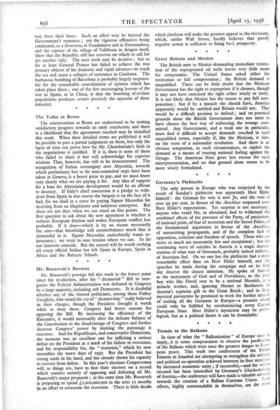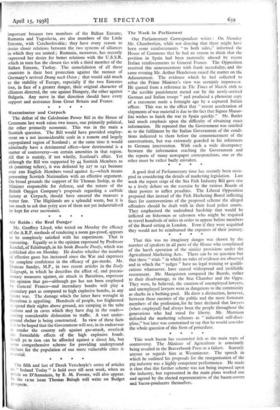Trends in the Balkans In view of what the "
Balkan'sation " of Europe used to imply, it is some compensation to observe the pacification of the Balkans which were once the greatest danger to Euro- pean peace. This week two conferences of the Balkan Entente in Istanbul are attempting to strengthen the military and political co-operation achieved between its four members by increased economic unity ; if successful,—and the will to succeed has been intensified by Germany's Gleichschaluing of Austria,—the conference will have made a valuable advance towards the creation of a Balkan Customs Union. Such efforts, highly commendable in themselves, are the nwre important because two members of the Balkan Entente, Rumania and Yugoslavia, are also members of the Little Entente, with Czechoslovakia; they have every reason to desire closer relations between the two systems of alliances in which they are united ; Rumania, moreover, has recently expressed her desire for better relations with the U.S.S.R. which in turn has the closest ties with a third member of the Balkan Entente, Turkey. The consolidation of all these countries is their best protection against the menace of Germany's revived Drang each Osten ; that would add much to the stability of Europe, especially if the two Ententes lose, in face of a greater danger, their original character of alliances directed, the one against Hungary, the other against Bulgaria. Any move in that direction should have every support and assistance from Great Britain and France.
* * * *







































 Previous page
Previous page